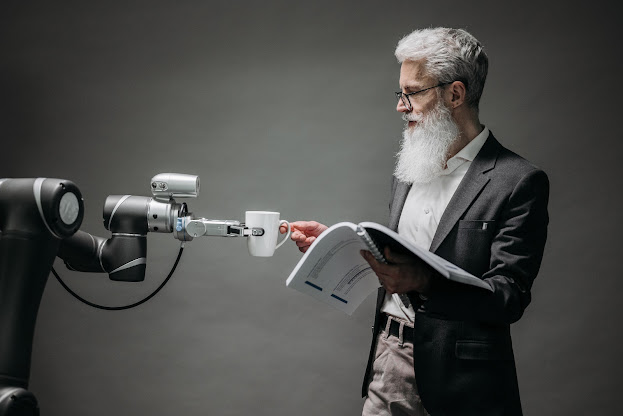Recalibrating assumptions on AI

Welcome to Tech Trends and Solutions. This Blog is dedicated to exploring and explaining the latest technological trends and innovative solutions in the tech industry. From cutting-edge gadgets and software to emerging trends and advancements in AI, VR, and IoT, this blog provides insightful and informative content for tech enthusiasts and professionals alike. Whether you are a tech expert or just starting, this blog has something for everyone interested in the world of technology.

Artificial intelligence (AI) has become a pervasive presence in our lives, from the algorithms that power our social media feeds to the machine learning systems that drive our cars. As AI continues to advance, it brings with it a host of ethical considerations that we must grapple with as a society. In this article, we will explore the ethics of AI and the need to balance innovation with responsibility.
AI has the potential to transform our world in countless ways, from improving healthcare to making transportation more efficient. However, as AI systems become more sophisticated, they also become more opaque and harder to understand. This opacity raises a host of ethical concerns, from questions of bias and discrimination to issues of privacy and autonomy.
One of the primary ethical considerations in AI is the question of bias. AI systems are only as good as the data they are trained on, and if that data is biased, the system will be too. For example, if an AI system is trained on data that is predominantly from one racial group, it may not perform as well on data from other racial groups. This can lead to discriminatory outcomes and exacerbate existing inequalities.
To address this issue, AI developers must be mindful of the data they are using and work to ensure that it is representative of the population as a whole. They must also implement processes to detect and correct for biases in their systems.
Another ethical consideration in AI is the question of privacy. As AI systems collect and analyze more data about individuals, there is a risk that this data could be used in ways that violate privacy rights. For example, an AI system might use facial recognition technology to track people’s movements without their knowledge or consent.
To address this issue, AI developers must be transparent about the data they are collecting and how it will be used. They must also implement robust security measures to protect this data from unauthorized access or misuse.
A third ethical consideration in AI is the question of autonomy. As AI systems become more advanced, there is a risk that they will make decisions that are harmful or unjust. For example, an AI system might be used to determine who receives medical treatment or who is granted parole. If the system is biased or flawed, it could result in unfair outcomes.
To address this issue, AI developers must ensure that their systems are transparent and accountable. They must also implement mechanisms to allow for human oversight and intervention when necessary.
Ultimately, the ethics of AI come down to a balancing act between innovation and responsibility. We must continue to push the boundaries of what AI can do, but we must also do so in a way that is mindful of the potential ethical implications. By being transparent, accountable, and responsible, we can ensure that AI is a force for good in the world.
Function of AI
The function of AI (artificial intelligence) is to simulate human intelligence in machines so that they can perform tasks that would typically require human intelligence to complete. AI systems are designed to learn and adapt on their own, making them capable of performing complex tasks and solving problems with increasing accuracy and efficiency.
The function of AI can be broken down into three primary categories: perception, reasoning, and decision-making.
Perception refers to the ability of AI systems to sense and understand their environment. This involves processing input from sensors such as cameras, microphones, or other types of sensors, and interpreting this data to extract useful information. Examples of AI applications that use perception include image recognition, speech recognition, and natural language processing.
Reasoning refers to the ability of AI systems to use logic and deduction to make predictions or draw conclusions based on available data. This involves analyzing patterns in data, identifying cause-and-effect relationships, and using this information to make informed decisions. Examples of AI applications that use reasoning include predictive analytics, fraud detection, and risk assessment.
Decision-making refers to the ability of AI systems to use perception and reasoning to make choices or take actions based on the information available to them. This involves weighing the pros and cons of different options, taking into account potential risks and uncertainties, and ultimately choosing the best course of action. Examples of AI applications that use decision-making include autonomous vehicles, recommendation systems, and chatbots.
Overall, the function of AI is to augment human intelligence by automating tasks, making predictions, and providing insights that humans might not be able to uncover on their own. As AI technology continues to advance, it has the potential to revolutionize many different industries, from healthcare and finance to manufacturing and transportation.
Comments
Post a Comment